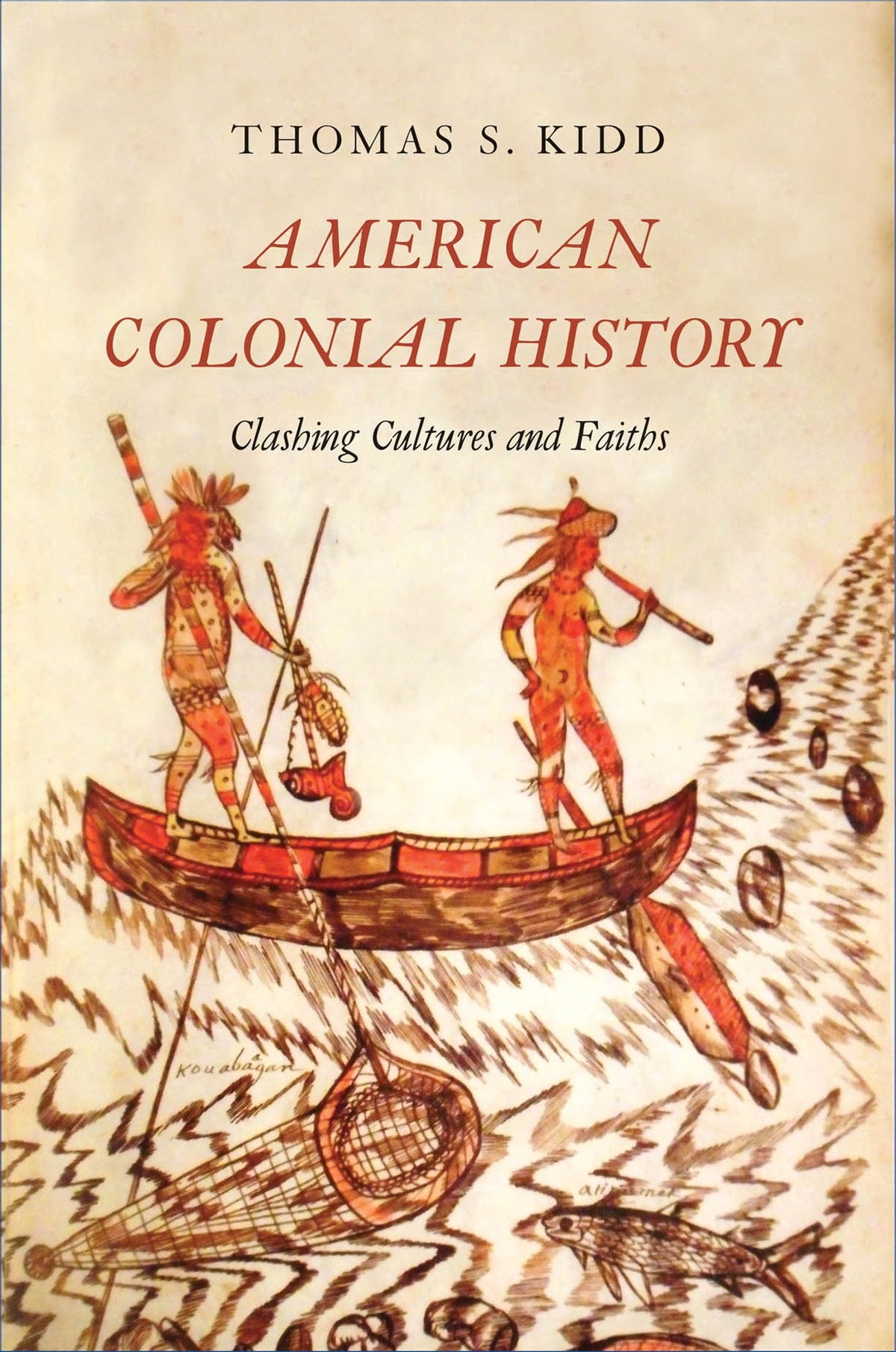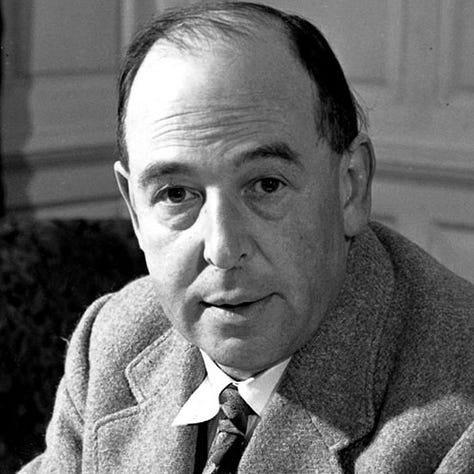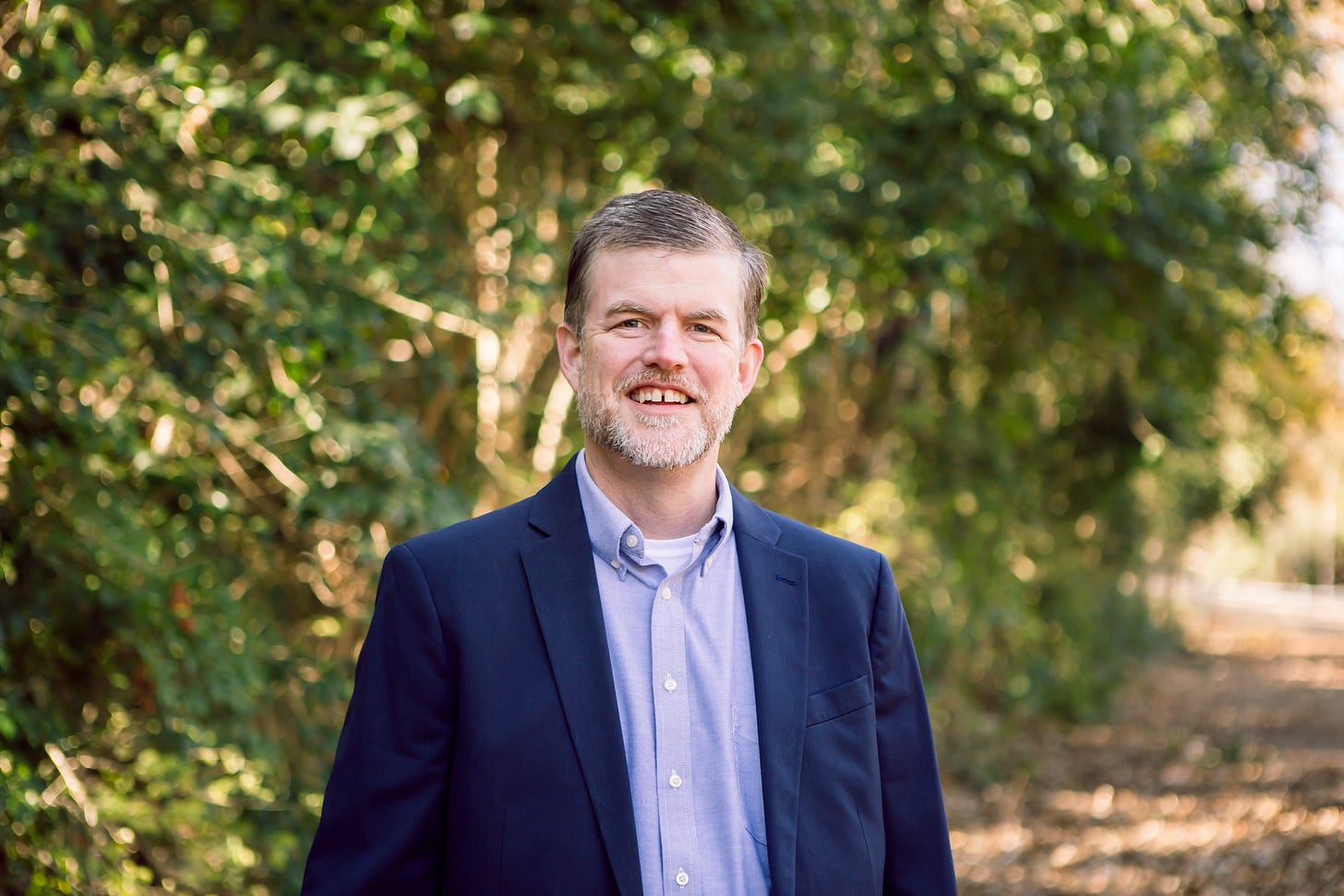The Uses and Abuses of History
Thomas S. Kidd Talks Historical Judgments, Job Prospects for History Teachers, How He Stays Productive, More
My favorite book from last year was American historian Thomas S. Kidd’s Thomas Jefferson: A Biography of Spirit and Flesh. And it wasn’t just me. World magazine named it their Book of the Year. I’ve always enjoyed Kidd’s insightful takes on the complicated relationship between religion and public life.
Beyond Jefferson, he’s written acclaimed biographies of several pivotal historical figures: Patrick Henry: First Among Patriots; George Whitefield: America’s Spiritual Founding Father; and Benjamin Franklin: The Religious Life of a Founding Father. With a special focus on the religious history of the United States, Kidd has also written America’s Religious History, Baptists in America, God of Liberty, Who Is an Evangelical? and several others.
Kidd currently serves as research professor of church history at Midwestern Baptist Theological Seminary, before which he served as distinguished professor of history at Baylor, as well as associate director of Baylor’s Institute for Studies of Religion. He writes for such popular outlets as the Wall Street Journal, Washington Post, and the Gospel Coalition.
Below we talk about the uses and abuses of history, how historical judgments are formed, and the one daily trick that keeps him productive and prolific.
Miller: I can still recall the exact book and reading experience that ignited my love for history: Giles Milton’s Nathaniel’s Nutmeg. What did it for you? Are there any specific episodes or books that sparked your interest?
Kidd: For me it was during my master’s program in history at Clemson University. I had been a history minor as an undergrad, but my master’s work was my first broad exposure to reading in history.
The historian that ignited my passion for history, and particularly the religious history of early America, was the great Harvard historian Perry Miller. Miller was not only a brilliant writer, but he was a fascinating character himself. He was an atheist, but he loved the Puritans because he saw them as people of deep principle, something he thought was depressingly uncommon in mid-twentieth-century America.
Americans are famously unhistorical. I recall Benjamin Netanyahu saying we’re so ignorant of history we don’t even recall what we ate for breakfast last Monday. What value does history really offer us?
In a sense, all of our decision making is based on history, whether it’s as big as a president deciding to go to war, or inconsequential as me deciding to return to a local restaurant. We think about what has gone well in the past, what hasn’t, and how past experience suggests that we should act in the present.
As some have said, the past doesn’t exactly repeat itself, but it does rhyme. We are building up our storehouse of wisdom and experience when we learn as much as possible about the past.
We are building up our storehouse of wisdom and experience when we learn as much as possible about the past.
—Thomas S. Kidd

What is something that drives you crazy about the way the media or the public handles history?
Both the left and right often use history simply as a tool to make contemporary political points. This results in ideological polemics masked as history. Good history always introduces us to people and scenarios that would seem improbable in our contemporary culture. Good history is more likely to make us think “I wouldn’t have expected that!” instead of “that is just like today!”
How about fellow historians: What aggravates you most about their work? Any pet peeves?
Academic history, like the humanities and social sciences in general, is an ideological (liberal) monoculture. I wish that academic historians didn’t contribute to the ideological abuses of history, but they often do. Even the best academic historians often seem to reach the same, boringly predictable, contemporary political conclusions, regardless of their topic (vote for Democrats, despise Republicans, and so on).
History is, if anything, complex and ambiguous. As a historian, what are the means by which you feel confident in arriving at reliable interpretations and conclusions?
There are many factors, such as breadth of research and familiarity with the literature on one’s topic. But maybe the most important standard is remaining open to evidence that might complicate your argument. Be open to new information that casts your heroes in a worse light, or your villains in a more positive light. I get suspicious about history that seems open only to drawing the nastiest—or best possible—conclusions about the subject.

You are a prolific writer—not only of books but also articles. Describe some of the methods behind your productivity. What is something you do that you suspect other scholars do not?
I hold myself accountable to a word count on writing days. I normally shoot to write 1,000 words per writing day. Of course, on editing days or teaching-heavy days, this count is not in effect, but on days when I am focused on writing, I keep track of how much I have actually written. This keeps me from falling prey to procrastination or indefinitely spinning my wheels.
What is your favorite part about a writing project?
Getting the hardbound copy of the book in the mail.
Least favorite?
Breaking through the impulse to procrastinate, or to chase distractions, a feeling I have almost every writing day.
How do you decide what your next project will be? What drives your choice of subjects?
There’s no exact formula, though each writing project typically leaves me with book-length topics about which I’d like to know more. I don’t lack for topics that interest me, but I do have to think about the realities of book publishing when I choose a topic. Few authors are so prominent that they can pitch just any idea for a book, and publishers will go for it.

I get suspicious about history that seems open only to drawing the nastiest—or best possible—conclusions about the subject.
—Thomas S. Kidd
If you were mentoring an aspiring historian, what’s one platinum piece of advice you would offer?
I wish I could be more optimistic about academia, but I am generally hesitant to recommend that anyone try to become a professor. The future of higher education looks quite stormy. Jobs are extremely rare already, but the looming collapse in the number of children and college-age Americans means that a lot of departments, schools, and universities are going to make deep cuts, or they’ll be closed altogether. If you want to teach history, the opportunities are better in private secondary schools.
You are a professed Christian. I sometimes think of Jonathan Rauch’s division between faith and reason in A Constitution of Knowledge; the historian’s formal role adheres to the second of those two schools. How do you handle these different strands of authority in your work? Put another way, what obligation does the Christian historian have to a secular discipline?
When you write for secular presses, which is where I have done most of my publishing, you have to remember that you’re often explaining religious history to a secular audience. I rather enjoy this challenge, but it means I can’t lead with providential interpretations of the evidence (for instance, “the Holy Spirit caused the Great Awakening of the mid-1700s”).
What I can do, however, is to make sure that readers understand the Christian perspective of the people I am studying. The religious people I study are complex figures, like all of us, but they typically take their Christian beliefs and spiritual experiences very seriously. They act on what they believe; they live in such a way that suggests their relationship with Christ is real.
Final question: You can invite any three authors for a lengthy meal. Language is not an obstacle. Who do you pick, why, and how does the conversation go?
Among relatively modern authors, I would pick the above-mentioned Perry Miller, the Russian novelist Fyodor Dostoevsky, and C.S. Lewis. I would want to talk to them about their Christian faith (or lack thereof, in Miller’s case) and how they depict people of faith in their writing.



Thanks for reading! If you enjoyed this post, please hit the ❤️ below and share it with your friends.
Not a subscriber? Take a moment and sign up. It’s free for now, and I’ll send you my top-fifteen quotes about books and reading. Thanks again!





I've read articles by Thomas Kidd, but I confess I've read none of his books. Which one would you recommend to start with?
Thanks for this insightful interview Joel. I will pass it on to my teenage son, who has hopes for becoming a history professor. The recommendation for private secondary schools is helpful and also what we had gathered from the current climate. Will try and get my hands on Nathaniel's Nutmeg and see if it has a similar effect on my son.
Also, would love to join that dinner party (although only as silent observer enjoying the conversation:)